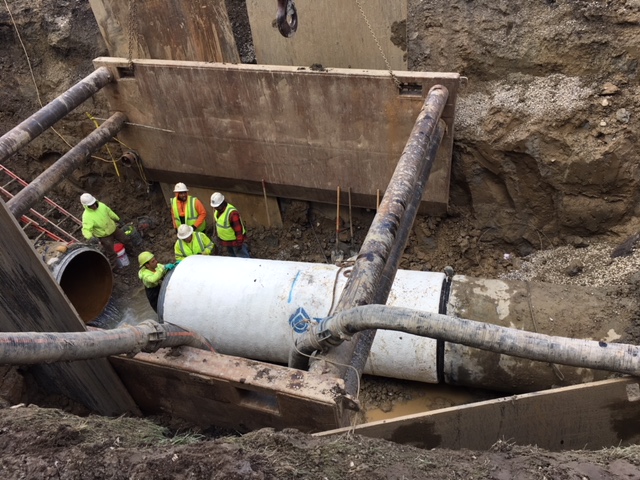What Does Oakland County Emergency Say About State of Our Infrastructure?
“Sometimes… you have to spend a dime to save a buck,” says Macomb County Public Works Commissioner Candice Miller.


Last week, more than 300,000 people in Oakland County had to boil their water because of a water main break. It was days before residents had safe drinking water running through their homes again. As of Monday morning, there are still some people under a boil water advisory.
What does this incident say about our ability to maintain underground infrastructure in Michigan?
Why do we seem to be seeing one catastrophic failure after another with our water systems in Michigan?
And what do they tell us about the amount of money we invest in these systems?
A number of local officials who deal with these issues on a regular basis join Detroit Today with Stephen Henderson to talk about these questions and give an update on the situation in Oakland County.
“Breaks are really the first sign of an aging issue with a pipe,” says Sue McCormick, CEO of the Great Lakes Water Authority (GLWA), which manages and maintains the water system in Metro Detroit, including the affected pipe in Oakland County. “And so, this is our first sign that there’s an aging issue with this particular pipe.”
“The mains themselves are coming of age, many of them are mid-life, and so we need to be able to use more current technology to be able to assess their condition,” she says.
Macomb County Public Works Commissioner Candice Miller says our region often fails on these issues because officials focus too much on small-scale fixes instead of the bigger picture. She talks about the issues the county uncovered when it began repairing a major sinkhole in Fraser almost a year ago.
“We found there was another 3,700 foot of pipe that had to be re-lined immediately because it was in imminent danger of another sinkhole and collapse,” she says. “Sometimes (being fiscally conservative) means you have to spend a dime to save a buck.”
Henderson also speaks with Oakland County Water Resources Commissioner Jim Nash and Plymouth Township Supervisor Kurt Heise.

“The big issue for funding is the older communities tend to be the lower-income communities, so they have ability-to-pay problems,” says Nash.
“If the state really wants to invest this money that they say they want to do… we need to follow through on it. We need to do this in a structured way that’s going to serve all of Michigan.”
“We’ve got to address the long-term infrastructure problems, which have been with us for generations,” says Heise, a former Republican state representative who also previously served as director of the Wayne County Department of Environment and has been involved in county and statewide water issues for many years.
“And that either happens through higher water rates, a dedicated millage of some sort… or we look at the state for relief. And the state really does not have the kind of money that is necessary to make these improvements.”
Heise says he would recommend putting a statewide water and sewer bond on the ballot for voters to decide. He says he’s confident that after the Flint Water Crisis and other water-related emergencies, voters would approve a bond to improve water infrastructure.
Click on the audio player above to hear the full conversation.
